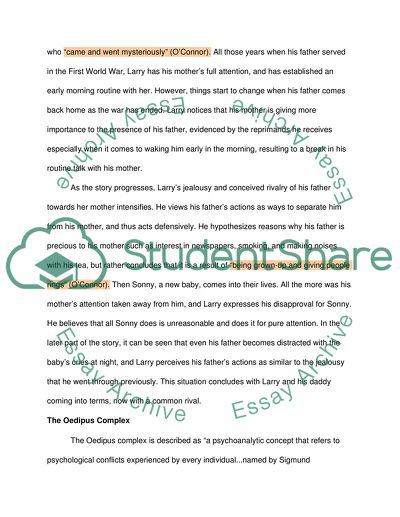Cite this document
(A Psychological Approach to My Oedipus Complex Research Paper, n.d.)
A Psychological Approach to My Oedipus Complex Research Paper. Retrieved from https://studentshare.org/psychology/1747159-my-oedipus-complex
A Psychological Approach to My Oedipus Complex Research Paper. Retrieved from https://studentshare.org/psychology/1747159-my-oedipus-complex
(A Psychological Approach to My Oedipus Complex Research Paper)
A Psychological Approach to My Oedipus Complex Research Paper. https://studentshare.org/psychology/1747159-my-oedipus-complex.
A Psychological Approach to My Oedipus Complex Research Paper. https://studentshare.org/psychology/1747159-my-oedipus-complex.
“A Psychological Approach to My Oedipus Complex Research Paper”, n.d. https://studentshare.org/psychology/1747159-my-oedipus-complex.


